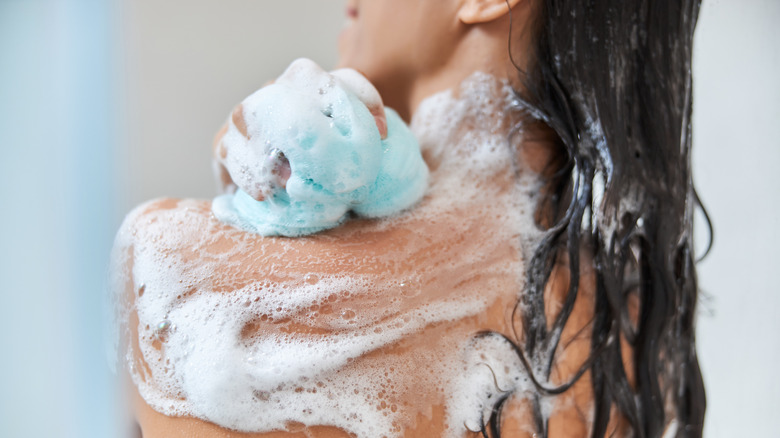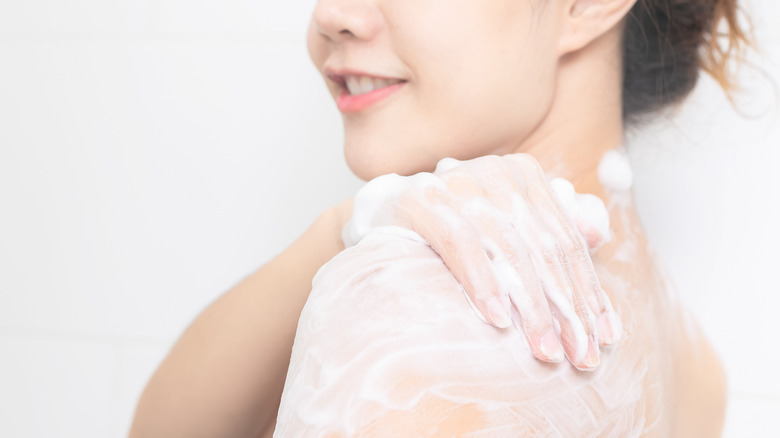This Is What Really Happens If You Never Change Your Loofah
Nothing feels quite as good as stepping into a steamy, hot shower and scrubbing away all the grime and stress after a long day. What if you learned that the loofah you're using to get squeaky clean is doing anything but?
Board-certified dermatologist Dr. Joel Schlessinger told The Healthy that bacteria removed from the body during scrubbing only multiply after residing all day in the nooks and crannies of the loofah. For that reason, he doesn't recommend using a buff puff either. A 2022 report published in IDCases showed that there's a direct link between bacteria build-up found in loofahs and major infections like impetigo and cellulitis.
Furthermore, loofahs can be excessively abrasive. According to Dr. Mona A. Gohara, an associate clinical professor of dermatology at Yale School of Medicine, loofahs are too harsh on the skin (per Livestrong). If that exfoliating feeling is what you're craving, there are other options.
What's a good loofah alternative?
There are plenty of ways to exfoliate that don't cause harm to your skin or put you at risk of skin infection. And you don't even need to spend money on a beauty tool. "Our hands are the most accessible tools," Dr. Gretchen W. Frieling, a board-certified dermatopathologist in Boston, told Real Simple. "They're easy to clean and, if washed properly before lathering your body with your preferred bath product, you're at less risk than if you were using sponges or loofahs." She recommends making your own exfoliant scrub with salt, essential oils, and an anti-bacterial body wash.
In some situations, using a loofah may be warranted. People with skin conditions that cause skin cell buildup, like psoriasis, could benefit from using a loofah, Dr. Peter O'Neill, the Chief of the Division of Dermatology at NYU Winthrop Hospital on Long Island, told The Healthy. If you feel you really must scrub with a loofah, be sure to take a few precautions to minimize bacterial spread and infection. Use your loofah no more than twice a week, and after each use make sure it air dries completely. Soaking your loofah in vinegar or diluted bleach also will limit bacteria growth.


